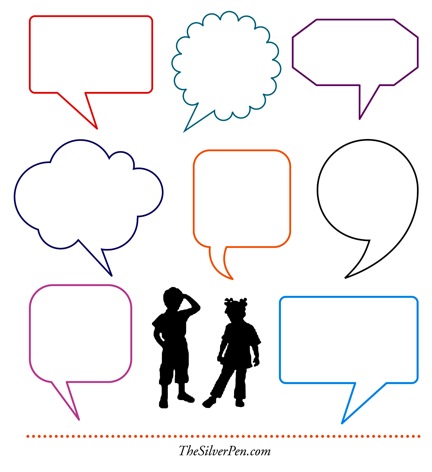After years spent as a bedside nurse and social worker, my clinical work now consists of co-facilitating support groups for children, including helping children express their feelings when there is a cancer diagnosis in a family.
Many of you already know my philosophy about including children from the time of a cancer diagnosis: children deserve to know and need to be included.
Silence is not golden. Honesty is the best and only way to establish and maintain a bond of trust. Discussing illness candidly and openly, in developmentally appropriate ways, will teach children that the adults in their life are trustworthy and that honesty is a priority.
Additionally, helping children express their feelings of fear, anxiety and sadness will lay the foundation for developing healthy coping mechanisms to weather the cancer storm healthily.
All that said, it’s NOT easy. There’s no way I would (or even could!) sugarcoat this process. Witnessing your child (or any child for that matter!) in pain is horrendous. However, the Silver Lining is that there ARE ways to help! Here are some suggestions:
- Be present. Turn off all electronics, look at your child and respond to anything and everything that she does in a cool, calm and collected manner.
- Respect all feelings, from anger to sadness to confusion. Please please please do NOT be judgmental.
- Name/label feelings. Break them down in to “pleasant feelings and difficult feelings.” Use this chart below to help guide you:
- Offer guidance, feedback, comfort and advice AFTER all feelings have been identified. Here’s the thing, if you try to “fix” everything or dismiss tears, for example, then your child’s ability to fully express her feelings will be hampered.
- If a child expresses anger, take a deep breath and think twice before you speak once. You don’t want to say something that you might regret.
- Talk about your own feelings and model healthy expression. It’s affirming to say, “I feel really sad about my cancer diagnosis, but I know that we will get through it together.”
What children need most in this life is to know what is true and the wisdom and guidance to help make sense of things. When children are young, we can deny, but that doesn’t keep them safe. It doesn’t make their childhood happy.
What I know for sure is that the willingness to show up and to be truthful changes us – for the better. Keeping children safe is not by denying what is happening, but by saying, “We. Can. Do. This.” …no matter what the “this” is.
While we cannot protect all of the world’s children from the big and little “lumps” (pun intended) of life, the manner in which the experience is handled lays the foundation for how children will handle the inevitable future “lumps” in the road.
Children are wonderfully resilient and CAN survive even the worst imaginable circumstances.




Thanks Hollye. This seems true when talking to "children" of any age!? A good shot in the arm this morning from my favourite nurse!
You're so right, Kim. My Master's in child development goes a long, long way in life! 🙂
Thanks for your kind words, as always!
I have to agree with Carolee! You are exceptionally qualified and the children and families will benefit from your expertise! A beautiful silver lining for them in their time of need.
Thank you so so so much, Kim!
The children that you see and help as a nurse psychologist are so lucky to have you, Hollye. Having been through a cancer diagnosis yourself, and being a parent as well, you are exceptionally qualified to facilitate support groups for these children facing a family health crisis. Learning to express themselves they too can establish bonds of trust and honesty with their parents, and be less fearful for the future.
Thank you so very much for your note, dear Carolee! I am so appreciative.
thanks for this post…exactly what i needed to read! Hoping you could further expand on this when the roles are reversed and its the child that is the patient and give advice from that point of view (both for the child and the parents)?
forgot to say thanks in advance for any advice you might have.
blessings,
Nancy
Always my pleasure, Nancy. Thank you!
Excellent idea, Nancy! I am happy to write about this topic! Thank you for the great suggestion.